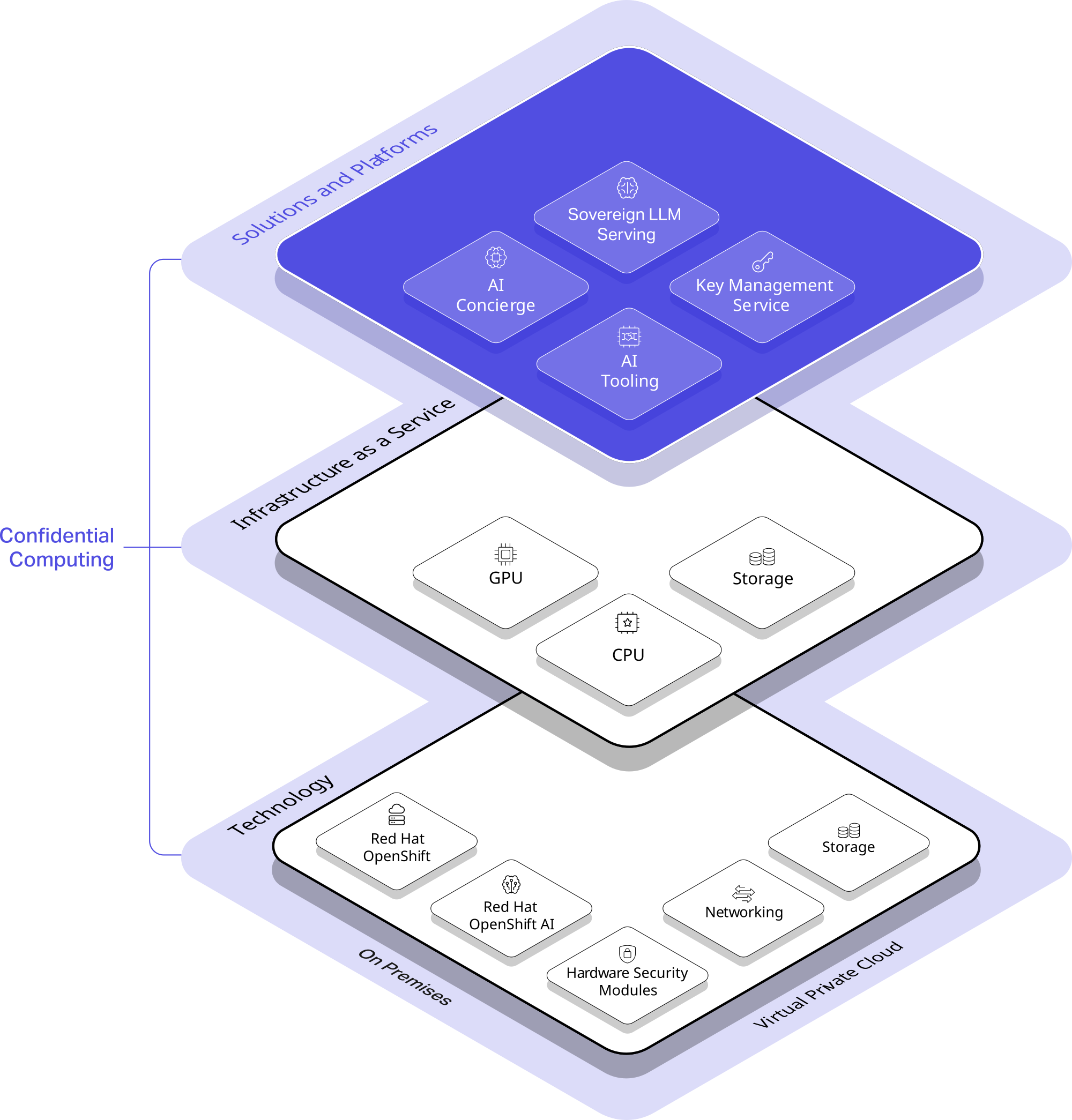Was ist kvant
kvant ist eine souveräne Schweizer Cloud- und AI-Plattform, die aussergewöhnliche Verfügbarkeit, Skalierbarkeit und Sicherheit bietet. Strategische Availability Zonen in Zürich und Basel gewährleisten eine robuste Infrastruktur, unterstützt von vertrauenswürdigen Partnern und der Einhaltung gesetzlicher Vorschriften.

Solutions and Platforms
Solutions and Platforms ermöglichen Unternehmen die sichere Entwicklung, Bereitstellung und Verwaltung von KI-Anwendungen in einer souveränen Cloud-Umgebung. Von Konversations-KI und LLM-Hosting bis hin zu fortschrittlichem Tooling und Schlüsselmanagement bietet kvant End-to-End-Funktionen für konforme und skalierbare KI-Innovationen.
Infrastructure as a Service
Infrastructure as a Service bietet eine souveräne, leistungsstarke Infrastruktur mit skalierbaren GPU-, CPU- und NVMe-Speicherressourcen. Sie wurde für anspruchsvolle Workloads entwickelt und gewährleistet Sicherheit, Zuverlässigkeit und vollständige Kontrolle über Rechen- und Datenebenen.
Technology
kvant kombiniert Red Hat OpenShift, HSMs, Hochgeschwindigkeits-Storage und sichere Netzwerke, um eine leistungsstarke und konforme Cloud-native Grundlage zu schaffen. Sie kann flexibel genutzt werden - entweder vor Ort oder über eine Virtual Private Cloud - und gewährleistet volle Souveränität und Kontrolle in jedem Bereitstellungsmodell.
Solutions and Platforms
Infrastructure as a Service
Technology
Red Hat OpenShift
Red Hat OpenShift ist eine führende Kubernetes-Plattform für Unternehmen, die die Bereitstellung, Verwaltung und Skalierung von containerisierten Anwendungen in hybriden und Multi-Cloud-Umgebungen ermöglicht. Integriert mit fortschrittlichen Sicherheits-, Entwickler- und Automatisierungstools rationalisiert sie die Anwendungsbereitstellung und gewährleistet gleichzeitig betriebliche Konsistenz und Compliance.
Red Hat OpenShift AI
Red Hat OpenShift AI ist eine integrierte Plattform zum Erstellen, Trainieren, Bereitstellen und Verwalten von KI-Modellen im großen Maßstab in Kubernetes-Umgebungen. Sie kombiniert die Flexibilität von Open-Source-Tools mit unternehmensgerechter Sicherheit, Automatisierung und Lebenszyklusmanagement für durchgängige KI-Workflows.
Hardware Security Modules
Hardware-Sicherheitsmodule (HSMs) sind physische Geräte, die kryptografische Schlüssel sicher erzeugen, speichern und verwalten, um sensible Daten und digitale Werte zu schützen. Sie sind in die souveräne Infrastruktur von Phoenix Technologies integriert und gewährleisten manipulationssichere Verschlüsselungsvorgänge, die Einhaltung gesetzlicher Vorschriften und die vollständige Kontrolle über die Schlüsselnutzung.
Networking
Die Netzwerktechnik von Phoenix nutzt Software Defined Networking (SDN), um virtuelle Rechenzentren zu isolieren, den Datenverkehr intelligent zu verwalten und die Bandbreite auf bis zu 100 Gbit/s zu skalieren. Dies gewährleistet eine sichere, hochleistungsfähige Konnektivität über Cloud-Ressourcen hinweg, während gleichzeitig die volle Kontrolle und Compliance gewahrt bleibt.
Storage
Der Speicher von Phoenix bietet Hochgeschwindigkeits-NVMe-Leistung mit integrierten Backups und Snapshots für nahtlose Skalierbarkeit und Datenausfallsicherheit. Verteilt über vier Verfügbarkeitszonen und mit einem Air-Gapped-Standort gewährleistet er sicheren, souveränen Datenschutz für kritische Workloads.
On Premises
kvant ist auch als On-Premise-Lösung erhältlich, mit der Sie die vollständige Souveränitäts-Cloud und KI-Plattform direkt in Ihrem eigenen Rechenzentrum bereitstellen können. Dieses Setup gewährleistet ein Maximum an Kontrolle, Sicherheit und Compliance - ideal für sensible oder regulierte Umgebungen, die eine luftgeschützte Infrastruktur erfordern.
Virtual Private Cloud
kvant Virtual Private Cloud (VPC) bietet isolierte, sichere Cloud-Umgebungen, die auf einzelne Organisationen zugeschnitten sind und eine vollständige Trennung und Kontrolle der Daten gewährleisten. Jede VPC basiert auf einer souveränen Infrastruktur und bietet dedizierte Rechen-, Speicher- und Netzwerkressourcen mit Unterstützung für vertrauliche Datenverarbeitung und die Einhaltung gesetzlicher Vorschriften.
Confidential Computing
Unser Confidential Computing-Ansatz verändert die Cloud-Sicherheit, indem er Daten im Ruhezustand, bei der Übertragung und bei der Nutzung schützt. Mit verschlüsselten Enklaven stellen wir sicher, dass sensible Informationen auch in gemeinsam genutzten Umgebungen vertraulich bleiben. Dieser Paradigmenwechsel setzt einen neuen Standard für die sichere Datenverarbeitung in der Cloud.
Produkte


Sovereign LLM Serving
Sovereign LLM Serving von kvant ermöglicht den sicheren Einsatz von hochmodernen Modellen wie Meta LLaMA 4 innerhalb einer konformen, in der Schweiz gehosteten Infrastruktur, die eine vollständige Datenkontrolle, Vertraulichkeit und einen nahtlosen API-Zugang für den Unternehmenseinsatz gewährleistet.

kvant Partner
Die Kombination aus Technologie und einem Partnerschaft ermöglicht es Transformationen anzustossen und nachhaltig Mehrwert zu generieren. Das kvant Partnernetzwerk verbindet Menschen, Daten und Ressourcen auf strategische Art und Weise, um Ihre Ziele und Ihre Visionen zu erfüllen.








